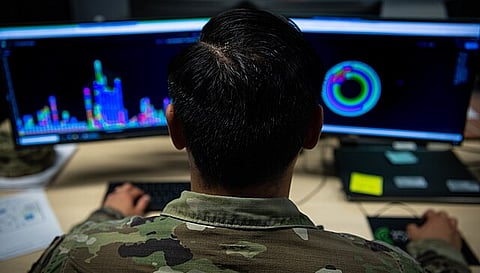

Countries signed the first United Nations treaty targeting cybercrime in Hanoi on Saturday, a landmark step to create a global legal framework for fighting digital crimes . UN Secretary-General António Guterres described the signing as an "important milestone," though he emphasized it was "only the beginning" in the global effort to combat sophisticated scams that "destroy families... and drain billions of dollars from our economy" . The new convention aims to strengthen international cooperation against a range of cybercrimes, from child sexual abuse material to transnational cyberscams and money laundering . More than 60 countries were seen signing the declaration, which will go into force once ratified by those states .
The UN Convention against Cybercrime aims to promote stronger measures to prevent and combat cybercrime more efficiently and to foster international cooperation . Officially titled the "Convention on Strengthening International Cooperation for Combating Certain Crimes Committed by Means of Information and Communications Technology Systems," it sets legal standards for addressing offenses like illegal access to systems, data interception, and cyber fraud . The treaty also focuses on the sharing of electronic evidence for serious crimes and includes provisions for technical assistance to developing countries . Its scope extends to collecting and preserving electronic data related to other criminal offenses committed through information and communications technology .
Despite its aims, the treaty has faced significant opposition from human rights groups and technology companies, who warn its broad language could lead to abuses of power . Critics argue the convention could enable the cross-border repression of government critics and journalists by compelling companies to share user data with governments . Sabhanaz Rashid Diya of the Tech Global Institute noted the treaty risks "rubber-stamping a very problematic practice that has been used against journalists and in authoritarian countries" . Over a dozen rights groups have slammed the human rights safeguards within the document as "weak" .
The treaty also faces opposition from the tech sector. The Cybersecurity Tech Accord, representing more than 160 companies including Meta and Dell, did not attend the Hanoi talks . The group had previously warned the convention could criminalize cybersecurity researchers and "allows states to cooperate on almost any criminal act they choose" . The choice of Vietnam as the signing location also raised concerns, given the country's record of using laws to "censor and silence any online expression of views critical of the country's political leadership" . The convention was first proposed by Russian diplomats in 2017, and a think tank analysis suggests Russia has been a driving force behind the treaty, which could serve as a platform for authoritarian states to advance state control of the internet .